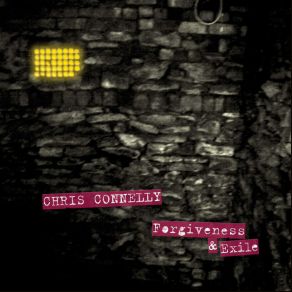Forgiveness & Exile
Download links and information about Forgiveness & Exile by Chris Connelly. This album was released in 2008 and it belongs to Avant Garde Jazz, Rock, Avant Garde Metal, Alternative genres. It contains 4 tracks with total duration of 39:57 minutes.

|
|
|---|---|
| Artist: | Chris Connelly |
| Release date: | 2008 |
| Genre: | Avant Garde Jazz, Rock, Avant Garde Metal, Alternative |
| Tracks: | 4 |
| Duration: | 39:57 |
| Buy it NOW at: | |
| Buy on iTunes $9.99 | |
| Buy on Amazon $9.49 | |
Tracks
[Edit]| No. | Title | Length |
|---|---|---|
| 1. | Arran | 5:02 |
| 2. | Forgiveness & Exile, Pt. 1 | 14:50 |
| 3. | Forgiveness & Exile, Pt. 2 | 10:18 |
| 4. | Forgiveness & Exile, Pt. 3 | 9:47 |
Details
[Edit]Chris Connelly's Forgiveness and Exile was inspired by — and benefits — the work of the Marjorie Kovler Center, an agency in his Chicago neighborhood that provides treatment and aid to survivors of torture who have migrated to the United States. All proceeds are donated. It is the most adventurous offering of his wide-ranging career and is rooted in the nightmare of reality. It was produced by Ben Vida (guitars), Tim Kinsella (guitars, organ), and Connelly. Other players include bassist Josh Abrams, drummer Adam Vida, vibraphonist Jason Adasiewicz, and Nate Kinsella on piano, guitars, and percussion. The album contains two songs. The brief "Arran," named for the Scottish Isle, opens; it is a transcendentally beautiful homage to a near mystical place in Connelly's homeland, which stands in sharp contrast to the rest of the album, comprised of a suite with nine parts. Musically, Forgiveness and Exile hints at Scott Walker's dark visions from Climate of Hunter, the forlorn memory of better days in Van Morrison's Common One, Walt Dickerson's chamber jazz on Impressions of a Patch of Blue, Bill Laswell's arid City of Light travelogue, and even the insistent repetitive trance music on Public Image Limited's Flowers of Romance. A melodic theme floats throughout the work, carried by modal interludes that wind around and through one another as tensions build and release. Connelly's singing voice (throughout) is the first witness here, as almost all of the title suite's nine parts (in three tracks) are tethered spoken word narratives by him or other "witnesses" including Shirley Manson, David Tibet, David Miller, and Tori Higginson. The work reflects deeply on the traumatized refugee: from abuse to flight to arrival as a stranger in a new land; yet it also offers evidence of hope in the journey from post-traumatic stress syndrome to healing, introduced by scraped acoustic guitar strings that give way to a strum in this labyrinthine tune. A slowly developed yet urgent soundscape ushers in Connelly's hunted empathic voice: "Forgiveness and exile/Partially to blame/A need to go to this place/To do it all again/In sorrow, few surprises...even soldiers become exiles..." His protagonist is equal parts Camus' Stranger and Solzhenitsyn's Gulag survivor. He struggles with the music, trying alternately to escape it and wrap himself in it for shelter. An electric guitar cuts in as a drumkit militarily creates drama even as piano evokes the spirit of memory on the misty, war-torn terrain. Connelly's witness seemingly endlessly relates the process of going back, re-experiencing trauma: its sights, smells, sounds, and textures where battlefields and prisons were transformed into the charnel grounds of Bosnia, Serbia, Kosovo, Darfur, Azerbaijan, and the Crimea. All narratives are present in one sprawling testimony, where beauty and horrific violence wrap together in a true dance of Kali and St. Francis taking place on an aural plane that is irresistibly, even obsessively listenable and beautiful. Throughout this meditation on memory, displacement, horror, and redemption, Connelly and his collaborators become a collective "Other," scarred inside and out, who often go unnoticed in our midst. Listeners get the luxury of reflection, but that gives way to anger, sorrow, and somewhere, near the end, a desire to help. Forgiveness and Exile is not so much a political album as a humane one; a memento mori for the dead, and an homage to the survivor. For as much ground as it covers musically and lyrically, it never loses focus and always, thankfully, returns us home, a little deeper and wider than before. In accomplishing so much so poetically, it is Connelly's masterpiece.